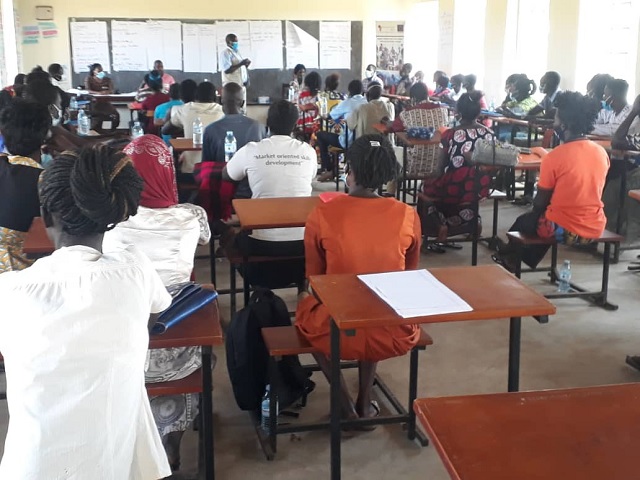
Mubende, Uganda | THE INDEPENDENT | The National Teachers College Mubende, has acquired funding support from the government of Belgium to support the implementation of the new curriculum that seeks to promote practical learning.
The Belgium government through its charity organization VVOB-Education for Development invested Shs415 million to support piggery, horticulture and other crop farming arrangements, cattle keeping and aquaculture at the Mubende based teachers’ college.
The funding is set to benefit more than 320 first and second year student teachers who are pursuing diplomas in Education with Agriculture, as well as their lectures in order to deliver their lessons in practical ways.
Ritah Akello, the agriculture adviser at VVOB said that the funding is part of the Belgium support to the education ministry after the scraping off of the grade 3 and 4 teachers’ certificate to improve practical agriculture in schools. .
She said that the funding is meant to facilitate students’ plots where an irrigation scheme was installed to sustain cabbage, tomatoes, onions, sukuma wiki, growing even in the dry season, fish farming and cattle keeping on top of training future teachers.
According to Akello, the initiative seeks to build capacity of students to understand that beyond class, they can still get employed on farms and earn a living instead of waiting for office jobs.
She said that the programme provides knowledge to learners to be able to survive amid challenges citing the Covid-19 pandemic that rendered many people unemployed.
She was speaking at the annual farming event organized by the NTC, Mubende with a view of allowing the student teachers demonstrate their skills acquiring during their stay at the college.
Describing agriculture as the backbone of the country, Akello said that the demonstration seeks to attract more student teachers and also enable them realize the benefits attached to it.
Francise Kateregga, the Principal of NTC said that the funding support would help student teachers to study practically where from class they go to the farm and do practical work to get hands on skills in agriculture.
He said that at the end of their training, the student teachers would be able to transfer the practical skills to their learners on top of becoming productive and start their own business initiatives.
According to Katerega, the institute has set up a bee keeping project, livestock, and they have large scale production for maize to supplement college revenue and nutrition requirements as well as building knowledge base for students.
With support from VVOB, Katerega revealed that the college is going to set up a maize mill to add value to the maize produced from their land in order to feed the animals.
He said that agriculture students constitute majority of the college population every year, and the teaching of agriculture practically is meant for the students in agriculture as well as benefiting those who love the skill.
Katerega said that part of the fund will be spent on developing student’s plots worth about Shs200 million, fish ponds with shelters (Shs55m) while a maize mill would cost about Shs130 million.
Katerega asked the students to embrace the initiative to ensure that when they go to the gardens, they fully acquire the knowledge which they will in turn utilize it in their respective communities where they will serve, and also for their individual benefits.
In February last year, government rolled out the new lower secondary education curriculum with the aim of meeting the learners’ needs especially in regard to skills training and enhancement.
*****
URN
 The Independent Uganda: You get the Truth we Pay the Price
The Independent Uganda: You get the Truth we Pay the Price





